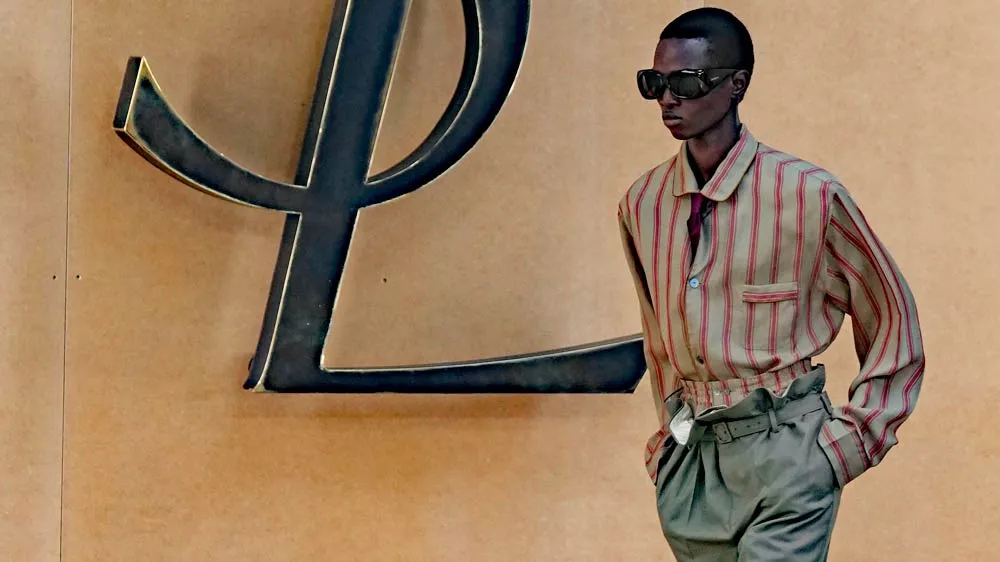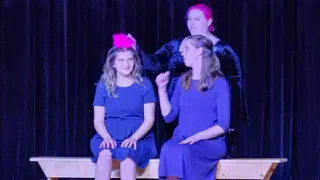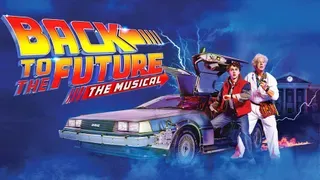February 17, 2014
Witness Uganda
Robert Nesti READ TIME: 5 MIN.
Griffin, the slight, boyish African American at the center of "Witness Uganda", is an unlikely agent of change. At 23, his life is in tatters: as an unemployed New York actor his career is headed (if successful) to auditioning for racially stereotypical roles (which he doesn't seem to get). Making matters worse he's ousted from the church choir he belongs to when his pastor learns he's gay. "Imagine a gay in the tenor section?" he says to Ryan, his bff? He needs to do something radical. So why not empty his saving account and head to Uganda?
Such is the opening scene of this stirring, deeply felt musical having its world premiere at the American Repertory Theater through March 16, 2014. For once, good intentions are transformed into powerful theater.
What makes Griffin journey so compelling is how unexpected his journey turns out to be. With a na�ve notion that to do good, he volunteers to build schools in a Ugandan village under the tutelage of Master Jim, a reverend whose humanitarian work he reads about on the web. Once there, though, he quickly learns that Master Jim is MIA and the schools that are built are only open to those that can pay a stiff tuition. The poorer teens -- orphans largely due to the AIDS epidemic -- are left to hang out on a hilltop overlooking the village with little hope for the future.
How Griffin disrupts his and their world makes for a story as tense as it is moving. In an interview with EDGE composer Matt Gould described the show as a "musical thriller" -- a description that seemed at odds with the show's seemingly feel-good theme. But what happens to Griffin is every inch as dangerous and action-packed as the plot from some Ben Affleck movie. It's no small secret that some humanitarian groups are corrupt and Griffin lands at ground zero in one of them. And he upsets the order of things in the community by simply attempting to change the paradigm of social action. "If I had known then what I know about the complexity of helping," he says early on, "I probably wouldn't have gone."
What makes "Witness Uganda" such a viable account is how Griffin's story steers clear of being didactic -- there are lessons to be learned, but they are never hammered home. Instead they are textured through a seamless blending of spoken word, songs and dance. Here's a musical with heart and intelligence, one that examines that "complexity of helping" with startling clarity and emotion.
That Griffin relates his own experiences makes the show a meta-musical, bringing to mind how Jonathan Larsen told the story of his peers coming-of-age in the East Village twenty years ago with "Rent." Like Larsen, Gould and (Griffin) Matthews do so well is echo the sentiments of their generation. But they also do so with the same knowing self-knowledge that makes Lena Dunham's "Girls" such must-see tv. Ryan (the strong-voiced Emma Hutton) could easily walk off the Loeb stage into that show where, no doubt, Griffin would be her do-gooder best friend.
But he's far more than that: a gay man attempting to make change in a corrupt and dangerously homophobic country. Like much in this show, the gay issue isn't hammered home; just mentioned in passing only to cap the show in a moment of great poignancy.
The staging by Diane Paulus takes a "less is more" approach. Largely taking place on a large rectangle (that moves up and down at crucial moments), it eschews large set pieces for projections that skillfully establish both the grimness and beauty of its exotic settings. (The sets are by Tom Pye, with projections by Peter Nigrini, moody lighting by Maruti Evans and effective sound design by Jonathan Deans.) The movement (by Darrell Grand Moultrie) moves in and out of the action with a thematic ferocity and kinetic beauty. In the opening number, Griffin moves around the Ugandan villagers like a stranger in the strange land, making a beautiful visual metaphor for what's to come. Though he's black, he's still a white person to them.
One of the smartest things that Gould and Matthews do in their story-telling is keep the villainous Master Jim off-stage. He's a bit like Kurtz in "Heart of Darkness" -- a man whose best intentions are corrupted by power. Master Jim scams the volunteers, takes their money and has them build schools that are never used for their intended use. This cynicism is best-expressed by the ironically-named Joy (a terrific Adeola Role), an embittered helper who lives in the volunteer camp with her younger brother Jacob (Michael Luwoye in a touching performance). She admonishes Jacob and Griffin throughout, but like Griffin, has an epiphany in the end. That moment closes "Witness Uganda" on a moment of hope and uplift that feels earned; but not without ambivalence. Jacob and Griffin bond early, but their relationship proves to be more complicated than meets the eye. The show ends on a moment of triumph -- Griffin's orphans are now headed towards their dreams -- but there's also a feeling of failure in that not everyone is saved.
Gould and Griffin offer quick, thumbnail sketches of the Ugandans, which are strikingly personalized by this able cast. There isn't a false note in performances, which only adds to the integrity of the whole. The on-stage orchestra, which includes Gould on keyboards, play with wonderful intensity, all but exploding with the cast in the exuberant curtain number at the conclusion.
The "stranger in a strange land" has been a popular meme in musicals -- think "South Pacific," "The King and I," "Cabaret" and "Pacific Overtures." Even the current smash "The Book of Mormon" follows a similar path. "Witness Uganda" is a worthy entry into their company: smart, wry, touching and wonderfully musical -- the score is terrific, the production superb -- this is an exalting show that lets you leave the theater walking on air, but also deep in thought at its darker implications about those complexities of what you have just seen.
"Witness Uganda" continues through March 16, 2014 at the American Repertory Theater's Loeb Drama Center, 64 Brattle Street, Cambridge, MA. For more information Vist the ART website.
Robert Nesti can be reached at [email protected].






